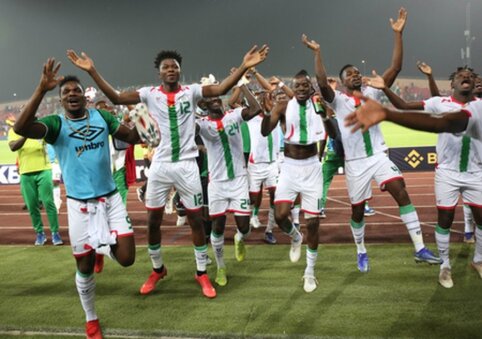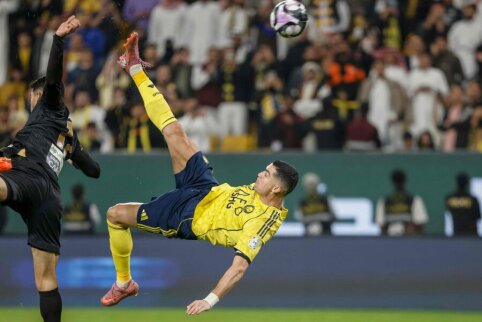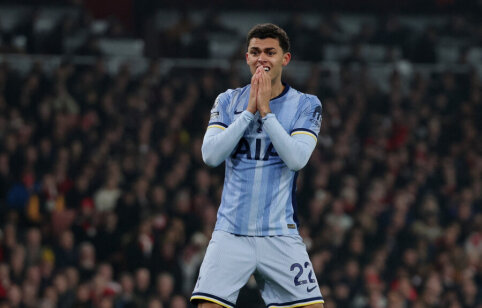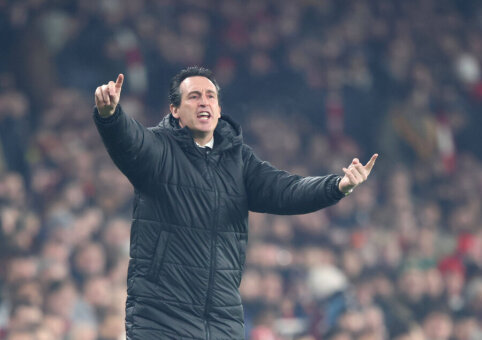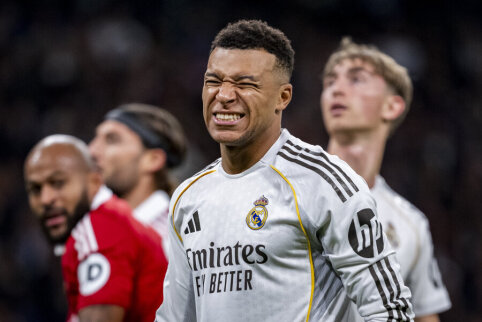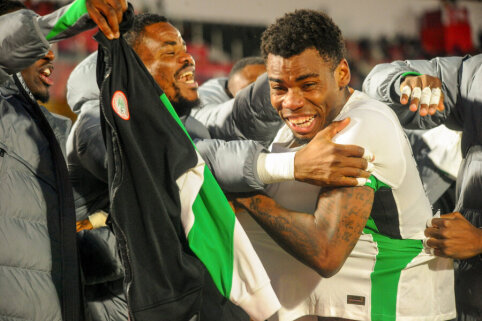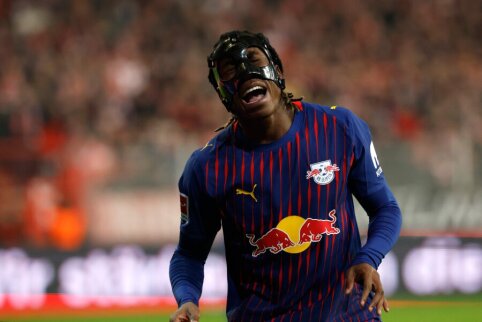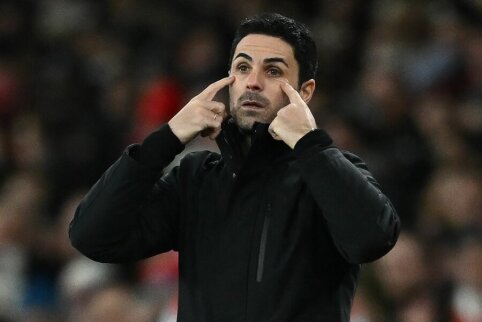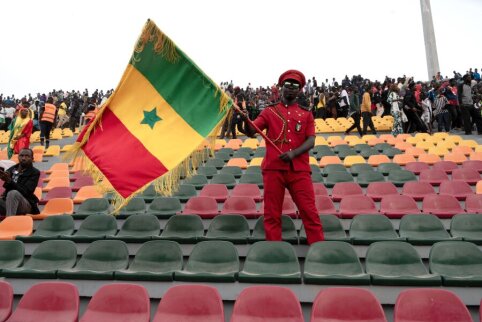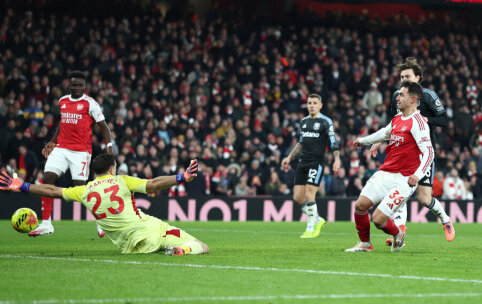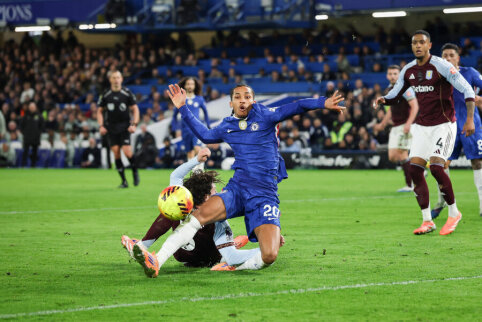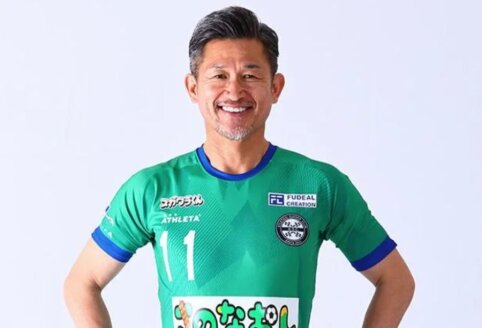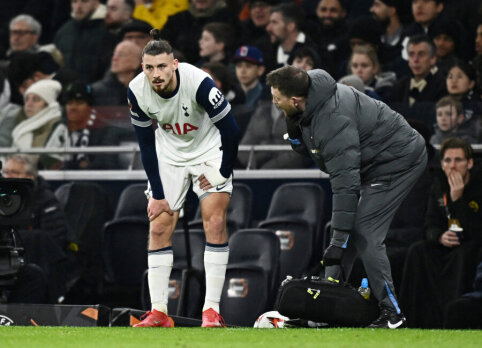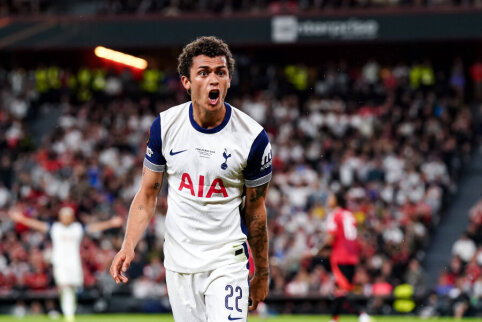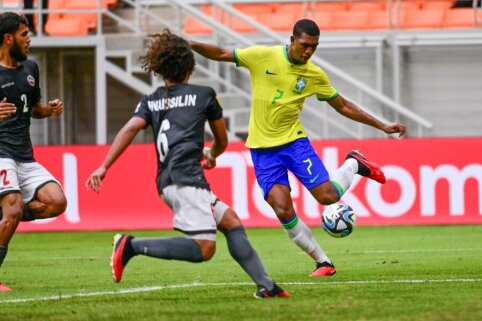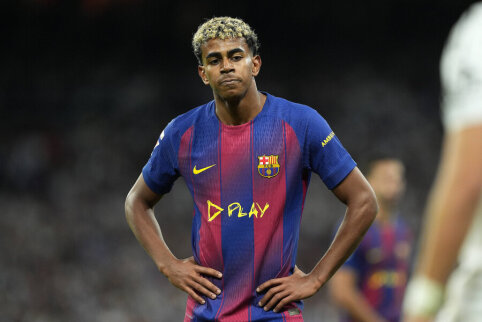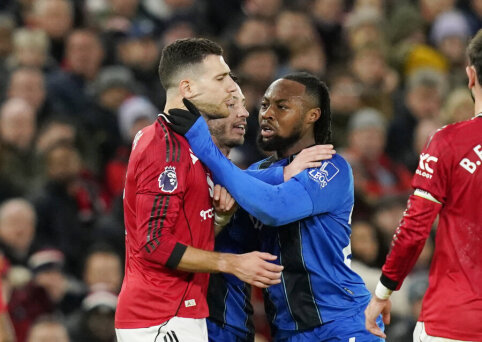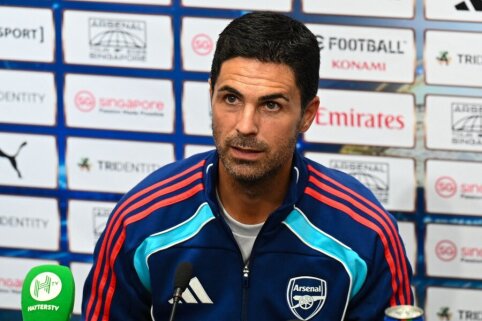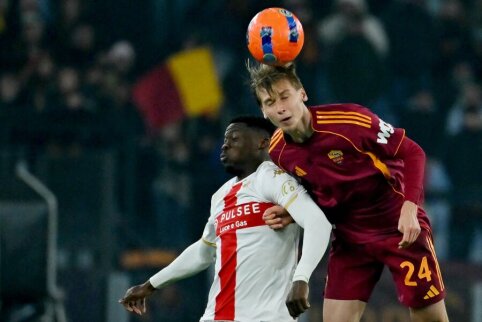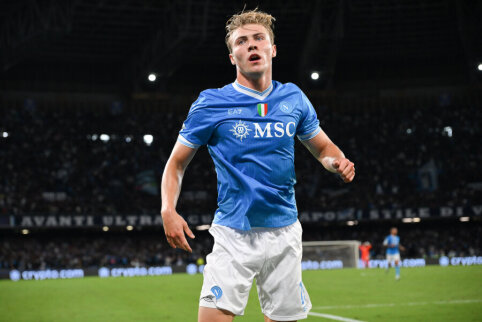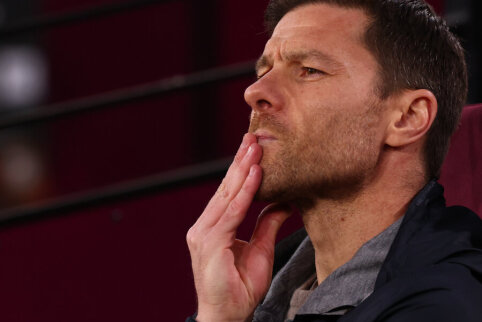 © EuroFootball.com
© EuroFootball.com
The interrupted match will not be replayed. "Roma" will register a loss with a score of 0-3. A serious disqualification awaits the "Olimpico" stadium. The Roma club will pay a substantial fine. Additionally, it will not be removed from this year's Champions League, although some do not rule out such a possibility. Such opinions are circulating among Italian commentators after the nightmare that occurred on Wednesday in the Eternal City.
Frisk arrived with a hostile role already
First, let's talk about the facts. In advance, we will notice that it was impossible to see the entire picture of the event from the press box at the "Olimpico" stadium. But, as known, Italian television loves Calcio so much that it shows it in great detail until late evening. Thanks to these television broadcasts, an overall impression of the scandal was formed.
Let's start with the fact that Swedish referee Anders Frisk entered the field at the "Olimpico" stadium as an enemy. After all, he officiated the 2002 spring Champions League match between "Roma" - . That meeting ended in a huge brawl after the final whistle. It involved players and staff from both clubs, as well as employees of the "Olimpico" stadium.
Since the scuffle started on the running track in front of the entrance to the tunnel, it was noticed from all angles. Several "Roma" players received disqualifications, and the stadium was fined, although initially "Roma" had lost the right to host a home match at this arena. "Roma" was then rightfully punished, but to regular visitors, it did not look disturbing. Because of this, "Roma" fans immediately put Frisk on the blacklist.
But let's get back to this week's match. The Swede's refereeing in the first half was not flawless, which unfortunately fueled passions. The Kiev team heavily pressed the home team's favorite, who occasionally stumbled. Frisk was aided by linesman Petersen, who twice mistakenly flagged a Roma player for offside, thus depriving the hosts of the opportunity to go "one on one" with the Ukrainian goalkeeper Shovkovsky.
Moreover, if he had hit the "Dynamo" player's leg, expulsion from the field would be guaranteed. So in this episode, Frisk was right. The problem was that in the overall context of his officiating and Totti's gestures, which he showed to the referee ten times alleging he was tripped, the stadium got even more heated.
It was fortunate for the Swede that he was hit by something other than a moped or a toilet
Shortly after the yellow card shown to Totti, Frisk blew the end of the first half. And he intended to leave the field calmly, but then he noticed a Frenchman unreasonably striking Marius Verpakovski. Seeing that the Kiev "Dynamo" player was on the ground, Frisk immediately showed a red card to Mexes. It was fair, but the Frenchman, trying to convince the referee that Verpakovskis was faking pain, got angry. In this situation, a melee almost broke out, as other "Roma" players ran up, but the "Dynamo" players coolly walked off the field. Frisk walked off as well.
And then what happened next, unfortunately, became a common occurrence in Italy: everything started flying towards the referee. Italian newspapers wrote in the morning that a one euro coin allegedly hit Frisk's head. However, watching television replays dozens of times, it was obvious that it was not a coin that hit the Swede. The object hitting him reminded him of not the smallest metal screw.
It's not worth marveling because larger objects have fallen in Italian stadiums: in Milan, fans from one sector threw a moped into another, and in the modest Reggio-Emilia, a piece of a toilet once flew onto the field.
Also not surprising is that the object came from the VIP box named "Monte Mario," where a ticket could cost 100 euros: such things are by no means new to Italians. And especially at the "Olimpico" stadium, where the executives of opposing clubs often have to protect themselves from their neighbors in the stands with the help of police or personal security. It would not be surprising if some object would fly towards Frisk even from the press box if it were closer to the field.
Persistent misunderstandings and minor scuffles regularly occur in the press box at the "Olimpico" stadium because the same dangerous characters somehow magically enter there.
The mayor of the Eternal City was extremely angry
Roma prefect Achille Serra promised to find the sniper who hit Frisk in the head, and the police spent the whole night trying to figure out the internal stadium camera footage. The problem was that there were many troublemakers throwing various items, so it is only a guess whether the culprit will be found.
However, Frisk did not hesitate whether to continue the match. His face reflected true horror. Even in an informal setting, he did not seem particularly brave, let alone in a quasi-war scenario! It would be very surprising if the Swede decided to continue his work at the "Olimpico" stadium.
Despite Roma officials trying to convince Frisk to return for the second half, he was adamant. Refusing to continue the match due to a very dangerous situation, he informed the UEFA delegate, and Frisk made the decision to leave the stadium. The official announcement that the match would not be finished was made only after Frisk and his colleagues, with a police escort, left the stadium. First aid to the referee was provided by "Roma" doctors, and he was later taken to one of the city's hospitals for a detailed examination.
After the decision to stop the match was announced, "Roma" officials refused to comment. Only the head coach Rudi Voller managed to say a few words to Italian television. The German admitted: he did not see what happened to the Swede, but he deeply regretted what occurred. Regarding the game, Voller said that in the first half the "Dynamo" played better, and the whole line of "Roma" players, including Totti, were unprepared for the match.
"Roma" president Franco Sensi only uttered a phrase about experiencing a strong shock. However, the mayor of Rome, Walter Veltroni, who was not present at the match, was much sharper: "What happened at the 'Stadio Olimpico' is a disgrace to all of Rome's sports. Just a few months after the riots during the Roma derby, when the "Roma" and "Lazio" matches were interrupted and not continued due to disorder, another incident occurred, casting a shadow not only on Roma football but on the whole city."
Rome has long deserved punishment
These are the main facts of the Rome scandal. It would be possible to delve into smaller details and provide quotes from dozens of official figures, Italian journalists, and ordinary fans. But there is no point in that. It is much more important to note that the events at the Rome stadium unfortunately continue the logical situation that has developed around "Roma".
It is no wonder that in Italy it is believed that Roma practically has no chance of winning the "scudetto" because chaos reigns in the capital's teams and around them. It is not surprising that "Roma" has managed to do so only three times in its history, and the last time it was done was under Fabio Capello, a couple of decades after the previous triumph. The departure of the iron-hand Fabio Capello from "Roma" this year signaled impending troubles for many.
Wednesday evening "Roma" displayed the arrogance of its players, who are held as gods in the city, to whom everything is forgiven. That nightmarish evening, the Rome club paid for its years of timid politics towards tifosi, with whom the club presidents flirted for years. The scandal in the match against "Dynamo" became a continuation of the impunity of the debt-ridden "Roma", to which they only patted their heads instead of driving them out of Serie-A for the financial shenanigans of the club's management.
The technical defeat, which will most likely be counted against "Roma" in the match with "Dynamo," has roots that go beyond that painful meeting with "Galatasaray". This loss also recalls the swinish behavior of Roma hooligans at the Trigoria training ground, where they tried to beat the black defender Zebe. How can one forget the events earlier this year, when the derby scene with was interrupted due to provocations by the tifosi, who caused chaos in the stands and then even considered delegating their representatives onto the field to convince Totti about the possibility of not continuing the match.
In the match against "Dynamo," the Roma club once again showed its inability and unwillingness to address the issues of match safety and organization. In Italy, such behavior by the club is forgiven due to the country's specifics, known for its chaos and protectionism at all levels of power, be it in politics or sports.
But in Europe, such things will not be overlooked. Therefore, due to what happened on Wednesday at the "Olimpico" stadium, both "Roma" and the Eternal City, which have long been affected by the virus of injustice and omnipotence, are to blame. Such bitter truth.
